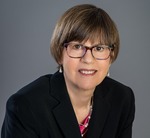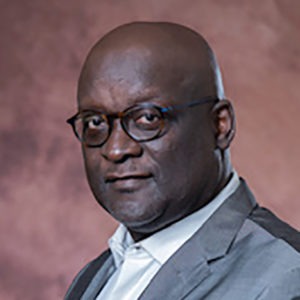Building a Web of Trust to Overcome Health Disparities
This is a tale of three cities, or more accurately, two cities and a state, where partnerships between faith-based organizations and health systems — built on trust and mutual respect — are solving some of health care’s toughest challenges.
// By Jane Weber Brubaker //
 An article titled “COVID and Race” appeared in the New York Times in June 2022. You might assume from the headline that the story would focus on the disproportionate impact of COVID-19 on minority groups. But you’d be wrong.
An article titled “COVID and Race” appeared in the New York Times in June 2022. You might assume from the headline that the story would focus on the disproportionate impact of COVID-19 on minority groups. But you’d be wrong.
The subtitle of the article is “The death rate for White Americans has recently (emphasis added) exceeded the rates for Black, Latino, and Asian Americans.”
Through intensive outreach efforts, minority populations are now getting vaccinated at higher rates than White Americans. “The country mobilized to reduce the racial vaccination gap — and succeeded,” says David Leonhardt, the article’s author.

Terris King, Sc.D., CEO of the Lukan Group, and pastor of Liberty Grace Church of God in Baltimore
Pastors in Black churches are leading the way in mobilization efforts. But in doing so, they are taking a risk. “These pastors are trusted sources, but when they work with institutions that have shown unequal and racist policies, they’re putting their reputations on the line to do that,” says Terris King, Sc.D., CEO of the Lukan Group, and pastor of Liberty Grace Church of God in Baltimore. Formerly, King headed clinical quality and established the Office of Minority Health at CMS, retiring as deputy chief information officer.
He and other recognized leaders interviewed for this story — Rev. Bobby Baker, Rev. Dr. Gary Gunderson, and Dr. Teresa Cutts, who were instrumental in creating the “Memphis Model” — are helping health-related entities forge successful partnerships with churches and other faith-based organizations.
These partnerships are based on empathy, listening, and mutual respect. “No longer are faith leaders brought in to ‘sign off’ on approaches, but we have seats at the table to inform, advise, and co-create solutions,” wrote King and fellow pastor Bishop J.L. Carter in an op-ed piece in the Baltimore Sun earlier this year.
Collectively, their efforts are making a measurable positive impact in Baltimore, Memphis, and North Carolina, and the influence of their work is spreading nationally.
This content is only available to members.
Please log in.Not a member yet?
Start a free 7-day trial membership to get instant access.Log in below to access this content:

